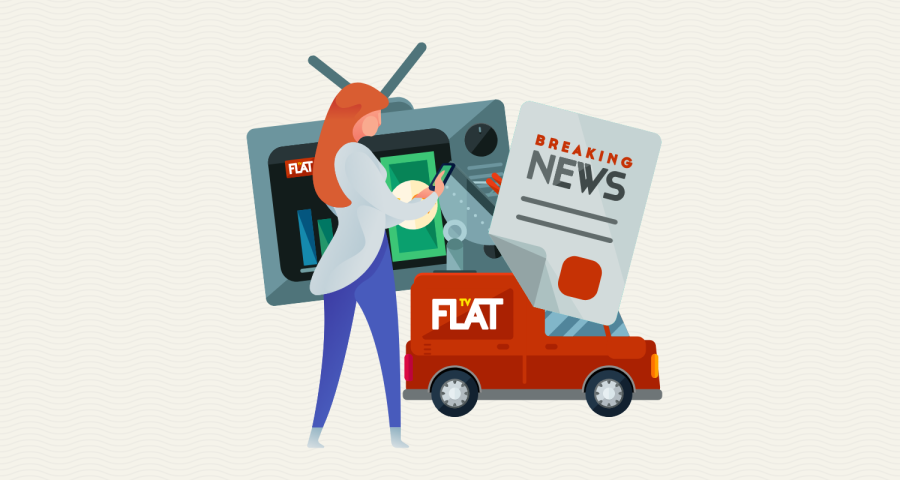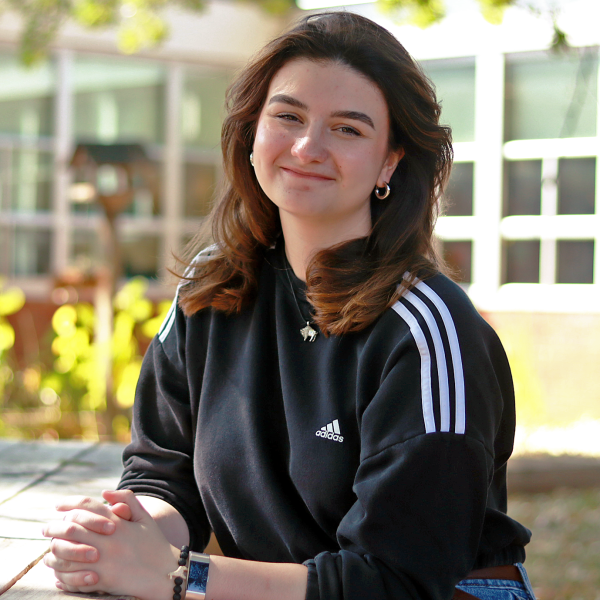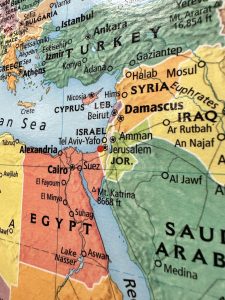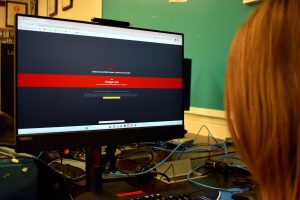’22 summer news recap
September 20, 2022
Last Updated: 9/22/2022
In the three months since school ended and students went home for the summer, news didn’t stop— in fact, it did everything but. From developments in the county to shocks worldwide, The Viking is here to break everything down: globally, nationally, and locally.
Globally
On June 16, the leaders of France, Italy, Germany and Romania traveled to Ukraine, pledging support for their admission into the European Union and solidarity throughout their ongoing war with Russia. Now, three months after the meeting and almost seven months since the initial push into the Donbas region, Ukraine has begun to make significant headway against Russian forces.
In South America, Colombia made history. Francia Márquez, a climate change activist, lawyer and mother of two, was elected the country’s first black vice president on June 19.
“Well I think that more than making history, we are giving impetus to the idea that, in Colombia, a new form of government is possible,” Márquez said in an interview with Democracy Now!. “Today, we need to put forth the nobodies, the people who have never had a voice so that we can write our own history—a history that would make it possible to live with dignity, justice, equity and equality, and would enable each and every one of us to turn the page to pursue an agenda of social justice.”
That same day, northeastern India and Bangladesh saw devastating monsoon rains, marking the beginning of a summer with harrowing weather. Rising rivers, lightning and mudslides left 25 dead and another estimated 3.1 million people displaced.
In mid-July, Europe saw record high temperatures, leading to more casualties. Portugal, France and Spain all saw raging wildfires, while Britain declared a state of national emergency with temperatures climbing to a record-breaking 104°F. Climate scientist Friederike Otto attributed the spikes to greenhouse gas emissions.
“Heatwaves that used to be rare are now common; heatwaves that used to be impossible are now happening and killing people,” Otto said to Scientific American. “Heatwaves will keep getting worse until greenhouse gas emissions are halted,” Otto continued. “The only way to stop heat records being broken time and again is to stop burning fossil fuels as quickly as possible.”
Many countries’ gender policies changed over the summer, with impacts varying wildly. The US overturned Roe v. Wade, a ruling that ended the constitutional right to abortion, in a historic five to four vote on June 24. Less than a month later, Argentina’s capital Buenos Aires banned the use of gender neutral terminology in schools, sparking criticism for the city’s Ministry of Education. Meanwhile, on Aug. 15, Scotland became the first country to offer free menstrual products to the public.
Boris Johnson, Prime Minister of Britain for three years, officially resigned on July 7. The decision came after years of backlash, from leadership of Parliament to breaking the COVID-19 rules he set in place.
While concern for COVID-19 generally began to dwindle, the World Health Organization declared Monkeypox a global health crisis on July 23. The virus, which has been around since the 70s, saw a surge of cases in May.
“(We are) collaborating with health authorities to prevent further spread of the disease,” WHO said on their website. “We are issuing guidance to help countries on surveillance, laboratory work, clinical care, infection prevention and control, as well as risk communication to inform the general public about monkeypox and how to keep safe.”
At the start of Aug., the world held its breath as the US sent House Speaker Nancy Pelosi to Taiwan. Already on a multi-stop trip to visit democratic countries trying to differentiate themselves from their former autocracies, the stop to Taiwan unofficially helped to legitimize the country’s independence… while proverbially “poking the bear.” For years, China has claimed Taiwan as its own territory, but the first visit from a U.S. official in 25 years marked a turning point in Taiwan’s, China’s and the United States’ international relations.
Nationally
The Food and Drug Administration kept busy this summer, particularly in June. On the 17, Moderna and Pfizer were officially allowed to provide COVID-19 vaccinations for children 6 months old and up. And, not a week later, the FDA went on to ban the sale of Juul e-cigarettes—though their decision didn’t last long before the ban was blocked by federal courts.
“We remain confident in the quality and substance of our applications and believe that we will be able to demonstrate that our products do, in fact, meet the statutory standard of being appropriate for the protection of the public health,” Juul Labs’ chief regulatory officer, Joe Murillo, said in a statement. “We now look forward to re-engaging with the FDA on a science- and evidence-based process to pursue a marketing authorization for JUUL products.”
As for the seemingly ever-present issue of inflation, June 15 saw the inflation rate reach a staggering 9.1%. While gas, groceries and dental care all took a hit, the housing market especially felt the reverberations, with the U.S. seeing the highest interest rates since 1994.
As of Aug. 6, the number of employed Americans officially returned to pre-pandemic levels. The U.S. Bureau of Labor Statistics’ report noted how occupations in the professional and business services, retail and healthcare fields all saw significant growth.
Gun violence remained a prevalent topic, especially after the Highland Park shooting during a Fourth of July parade. The gunman, Robert E. Crimo III, left seven people dead and another 31 injured at the scene. Crimo was taken into custody at 6:30 p.m. that day, and not four weeks later was indicted with 117 charges on July 27.
“I want to thank law enforcement and the prosecutors who presented evidence to the grand jury today,” Eric Rinehart, the State’s Attorney, said in a press release. “Our investigation continues, and our victim specialists are working around the clock to support all those affected by this crime that led to 117 felony counts being filed today.”
History was made on July 13 when Mary McLeod Bethune, an educator, activist and advisor to President Franklin Roosevelt, became the first black American represented with a state-commissioned statue in the U.S. Capitol’s Statuary Hall. Bethune’s statue, which replaced an effigy of the Confederate General Edmund Kirby Smith, now is one of just 35 statues in the hall.
Locally
Closer to home, we’ve felt the impact of global news. Gas prices at the local Exxon skyrocketed, debates on the COVID-19 vaccine have continued and members of the community have remained vocal on the repercussions of gun violence in America.
Valley’s International Relations and AP Human Geography teacher Kent Bailey believes that remaining aware of global news may help locals better understand changes in the community.
“We remain a very, very interconnected planet,” Bailey said. “Things that happen in certain parts of the world are, of course, going to affect us here at home.”
So what can people do from here in Loudoun County? Bailey notes that local elections may be key.
“People typically don’t spend a lot of time focusing on the town council, but it’s what affects us here in Purcellville the most,” Bailey said. “Whoever we choose to vote for in November means a lot as far as what our town might look like here in the next few years.”
As for the younger demographic at Valley, who may not be able to cast a ballot, Bailey advised students interested in becoming politically active to take the lead on their own initiatives.
“If you care strongly about something, you can help out campaigns and organize school activities. Then, when you can vote, you can be even more a part of the process.”
Bailey remains firm that education is the pathway to change on any level.
“Something I always say to my students is read, read, read and read some more,” Bailey said. “Read as much as you can on different subject matters so you can become the most educated voter you can possibly be.”








